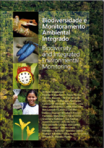In this guest post Martin Sharman opens up a rich area of debate by arguing that as a policy concept, ecosystem services puts human wants first and foremost and undermines moral-aesthetic value arguments for conservation that are widely held in society. Martin was the policy offer responsible for biodiversity and ecosystems in the European Commission’s DG Research & Innovation up until his retirement last November. During his career he made an enormous contribution to biodiversity research and policy, including the initiation of the BioFresh project. The opinions expressed in this post are, of course, his own and are not intended to represent a position of either the Commission or BioFresh.
A "resource" is something that is useful to someone. A "natural resource" is something in the natural environment that a human can use to satisfy want or increase wellbeing.
To adopt this vocabulary is to adopt a forthright utilitarian view of the natural environment, and implicitly to accept that human benefit is the only good. Not only is human benefit the only good, but it is quantifiable – for if not, then we can never agree on what constitutes a resource, or who has the greater right to it. Thus someone who speaks of natural resources accepts, again implicitly, that happiness and wellbeing can be quantified. The vocabulary also requires that this quantified human benefit remains, if not constant, then comparable over cultures and generations.
More than this: the wellbeing of the "resource" is insignificant. It is only by setting concern for the wellbeing of the resource to zero that one can regard it as merely something to satisfy human want. Human benefit is the only good. This is the First Commandment; in the limpid words of the King James version of the bible, thou shalt have no other gods before me.
In this observation lies much of the moral argument against the concept of ecosystem services: just as oranges are not the only fruit, so humans are not the only species.
The concept of ecosystem services is one thing; the premise of its proponents is another. It is, in short, that conservation based on intrinsic value of biodiversity has failed to stop the loss of species, ecosystems, and the complex web of interactions between them. Since an ethical argument has failed, then we should try self-interest. By demonstrating that human wellbeing is increased by the services rendered by ecosystems, we can motivate people to protect the source of the service – biodiversity.
We know that conservation is not working because we continue to lose biodiversity. Oh yeah? This is the equivalent of me deciding that my accelerator is not working because my car is losing speed. Why is such a daft non-sequitur accepted by otherwise intelligent people? You immediately thought of many reasons my car might be losing speed – I have the brakes on, I’m going up a hill, I’ve run out of fuel, I’ve run into sand, I’ve hit an oncoming truck. The obvious reason that we are losing biodiversity is the memento mori that stares at us from our looking glass – biodiversity loss is the inevitable result of our debt-based economic system and our swelling population’s unsustainable demands on nature. We all know that. Why do we mutely accept the dangerously diversionary nonsense that "biodiversity is being lost because conservation is not working"?
Ecosystem services takes the utilitarian logic of natural resources one important step further. A "service" by definition benefits humans. If we are to protect services only if they benefit humans, then what happens to the useless ecosystems? Are they simply to be cemented over?
I recently heard a discussion in which one person said "most people are useless", meaning that they are surplus to requirement. The outrage that this provoked was spearheaded by someone saying that you can never prove that anyone is useless, because you can never know enough about their contribution to their social fabric. So does this mean that you can never show that an ecosystem is useless? If so that leaves the ecosystem services argument saying that because some ecosystems benefit humans, we have to protect every ecosystem.
Which may be the right answer, but why reach it by such objectionable means?
For those of us with a reverence of nature, the ecosystem services rhetoric and mindset are abhorrent, being fundamentally immoral and unethical. They take the most ecologically damaging invasive species in the history of life, and place it above all other species on Earth. They cast all other – voiceless – species in the role of consumables. This mindset might have worked for Homo habilis. It will not work for Homo sapiens.
Martin Sharman for the BioFresh Blog: http://biofreshblog.com/2013/07/03/perspective-martin-sharman-on-ethics-and-the-ecosystem-services-paradigm/
The University of Cambridge invites for applications for a Research Associate to work on EU-BON, a major EU-funded research project seeking to improve the use of biodiversity data in public policy.
Applicants should have a PhD in a relevant social science or conservation science. Experience in both qualitative and quantitative analysis is desirable. Applicants should ideally have some first-hand experience of public policy processes and a willingness to travel within the European Union for research. Excellent organisational and communication skills will be essential in working as a successful part of this large, multi-partner and multinational team.
The researcher will carry out research on how biodiversity data is currently used in European policy making and will contribute to analysis of the opportunities to increase its effective provision and use. Research methods are likely to combine qualitative and quantitate analysis and to focus on the use of biodiversity data in public policy contexts. It is expected that some of the research will take place in Brussels. The researcher will have considerable freedom in defining the research project in discussion with Dr Doubleday and Prof Sutherland. In addition to carrying out research on the use of biodiversity data in European policy making, the researcher will support Cambridge's contribution to EU BON as a whole. This will involve contributing to other workpackages as and when required. More information about EU BON can be found here: http://www.eubon.eu
Fixed-term: The funds for this post are available for 36 months in the first instance.
Completed applications consisting of a CHRIS/6 (Parts I & III) (downloadable from http://www.admin.cam.ac.uk/offices/hr/forms/chris6/) a covering letter, and CV, should be sent to Danielle Feger, via email: geogrec@hermes.cam.ac.uk or sent to Research Administrator, Department of Geography, Downing Site, Cambridge, CB2 3EN
Please quote reference LC01355 on your application and in any correspondence about this vacancy.
Any enquiries concerning the position can be made to Dr Robert Doubleday, rob.doubleday@csap.cam.ac.uk
For more information about the position, please visit: http://www.jobs.cam.ac.uk/job/1611/
The Brazilian initiative PPBio (The Program for Research on Biodiversity) launches a new book based on over a decade of experience in implementing the biodiversity monitoring system RAPELD in the Brazilian Amazon. Richly illustrated and written in simple language, the book "Biodiversity and Integrated Environmental Monitoring" addresses the issues that led to the system development, covering topics such as the spatial organization and representation of biological diversity, environmental monitoring, and data management.
Monitoring of biodiversity is not merely an academic endeavor. Although scientific aspects such as representation of biodiversity and biodiversity data integration, management and preservation are of a great importance, it is also essential to think about the political context in which decisions will be made and how to incorporate political stakeholders and decision makers.
"As this important book makes clear questions about biodiversity are far from purely scientific. Biodiversity matters. Our needs to assess it embed in a complex of questions posed by managers, policy makers and those who live in or otherwise benefit from biodiversity.", explains Dr Stuart L. Pimm in the preface of the book. "So how do we ensure that data collected now will be useful for purposes we cannot yet imagine at some unexpected time in the future? Or provide comparison to some other place that we might survey some day?"
Those and many more questions regarding biodiversity data management and policy involvement are discussed in the new book "Biodiversity and Integrated Environmental Monitoring".
The EUBrazilOpenBio project announces two new training tools as a part of its e-training Programme aiming at educating and enabling current and potential users of EUBrazilOpenBio to unlock new knowledge and shape effective policy on biodiversity challenges. The new tools cover the following use cases: Ecological Niche Modeling and Cross-mapping.
The EUBrazilOpenBio anytime, anywhere eTraining tools are designed for researchers in the spheres of Biodiversity, Life science, Climate Change, application Developers as well as regulatory authorities and policy decision-makers.
EUBrazilOpenBio is focused on tackling the complexity of biodiversity science such as the diversity of multidisciplinary datasets spanning from climatology to earth sciences by integrating advanced computing resources with data sources across Europe and Brazil.
For more informationand to try out the new tools click here.
Science for Environment Policy features a policy brief explaining the biases around biodiversity databases in their latest issue 331, from 6 June 2013. "Biodiversity databases: language and location help explain biases" features a new study arguing that low numbers of English speakers, large distances from the database host and low security acting as key barriers to data collection and among the main reasons for the underrepresentation of some countries in biodiversity databases.
Source: Amano T., Sutherland W.J. (2013) Four barriers to the global understanding of biodiversity conservation: wealth, language, geographical location and security. Proceedings of the Royal Society B. 280: 20122649. doi: 10.1098/rspb.2012.2649




 RSS news
RSS news


 Please find the PDF of the book here.
Please find the PDF of the book here.


